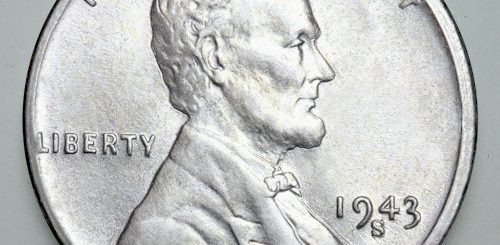Safe Way to Clean Coins
In every collection, cleanliness and orderliness is always a must. There’s usually a neat pattern that a collector follows so his collection is presentable and pleasing to the eyes. He may even have a regular cleaning and organizing schedule that he religiously follows. A good presentation of any collection must be clean, organized and orderly. So, you may be surprised to know that it’s not always the case.
In coin collecting, cleaning the coins is actually discouraged. Cleaning the coins may do more harm than good to your collection. Either you accidentally scratch it, or use a harmful chemical on it, and totally damage it. If you are thinking that that tarnish on your silver coin is making it ugly and lessens its value, STOP! This tarnish called “toning” is a cause of natural oxidation and must not be removed. It actually gives more value to your coin because it adds to the age and authenticity of your coin. Removing this toning will not only lose your coin’s antique appeal but will also certainly damage the coin’s surface. And that will seriously diminish its value.
Unless you really, really need to, never ever clean your coins! And unless you know the proper way of cleaning rare & precious coins, do not dare try it! So what is the proper way of cleaning your coins? The most important thing you have to remember is to avoid using chemicals on your coins. Do your best to avoid soaking or polishing your coins with chemicals. Unless you are one hundred percent sure that it is intended for cleaning coins and is one hundred percent safe, do not even attempt. You can ask the experts for advice or you can read numismatic magazines. It pays to do your homework well. Do not try to be smart and use whatever you see available in your house. Never assume that it is okay. When it comes to your coin’s safety, you should not take the risk. For example, you find some metal polish lying in your dad’s garage, or work-shed and say, “oh, this would do.” Argh! Never, under any circumstances, do that.
It may seem ludicrous but the proper and safe way of cleaning is really simple and inexpensive. All you need is distilled water (or warm tap water as an alternative), a mild formula of dishwashing liquid, soft towel and plastic containers. Take note though that you have to be sure that you are using mild dishwashing liquid. Something that is gentle to the skin so it would also be gentle on your coin.
First step:
Clean your hands of all oils and residue. Lay a soft towel on a clean table. If the towel is not thick, fold it until it is thick enough to protect the coin from being scratched.
Second step:
Prepare your soapy solution on a plastic container—distilled water and a squirt of mild dishwashing liquid. Just a tiny squirt will do.
Third step:
Immerse and clean your coin in the solution one by one by rubbing them gently outward with your fingers. Do not soak them all at once, or they might scratch each other.
Fourth step:
Rinse your coins, again one by one, in another plastic container with distilled water. You may be asking why distilled water. Well, this is because distilled water is free of minerals and impurities that might damage your coin. You may use warm tap water on the third and fourth steps, but do a second and final rinse with distilled water.
Fifth step:
If you used distilled water in the final rinse, you can leave your coin on the towel and allow it to air-dry. But if you still use tap water, you have to gently pat your coins to dry to avoid spotting. Take note, gently pat, not rub. Rubbing it might scratch your coin.
Sixth step:
When you are sure your coins are already dry, store them in solid plastic coin containers and keep them safe.


